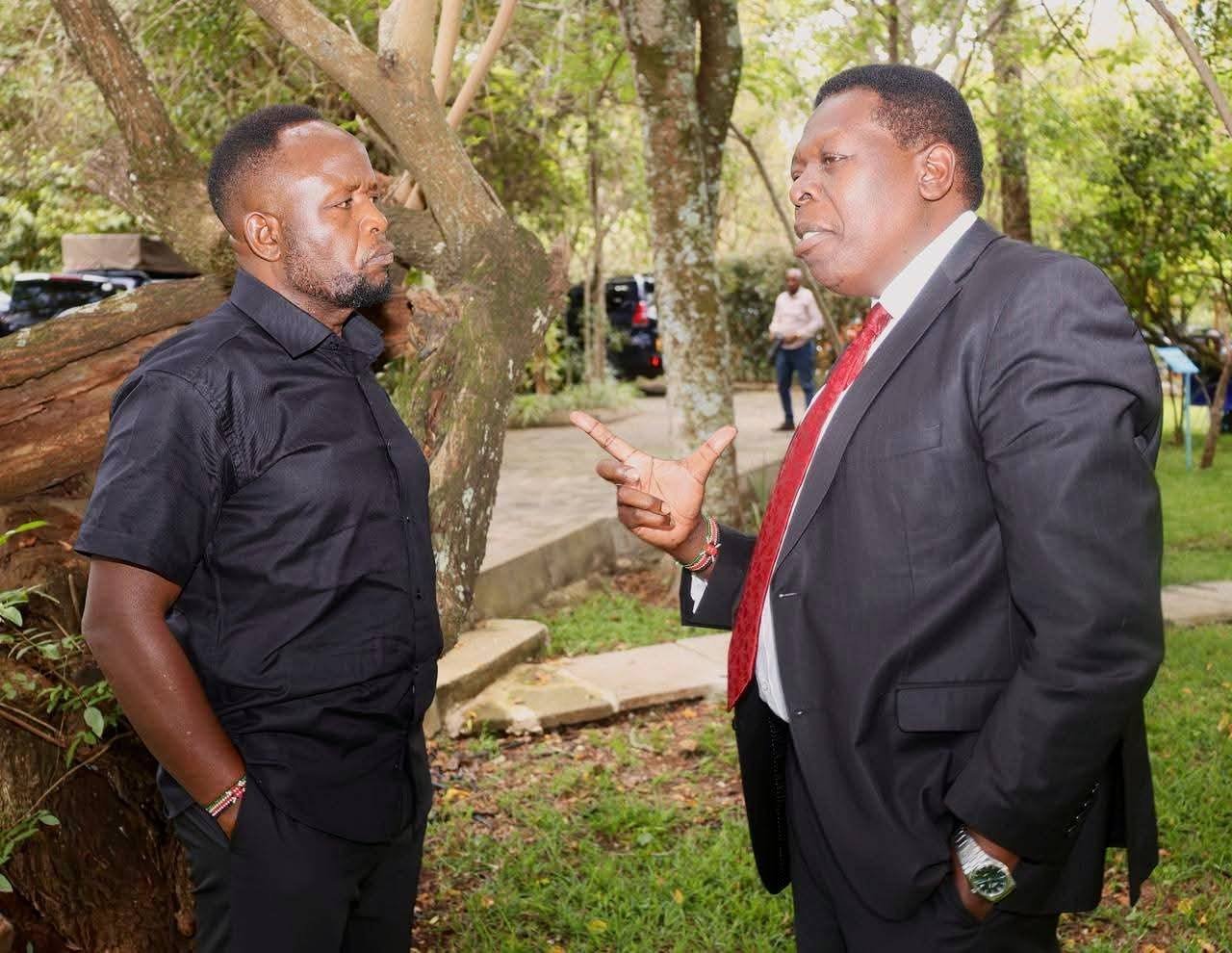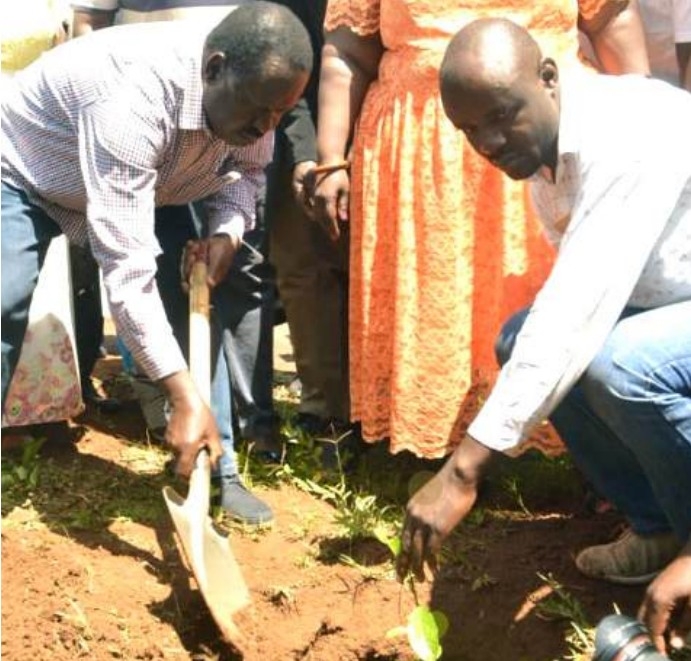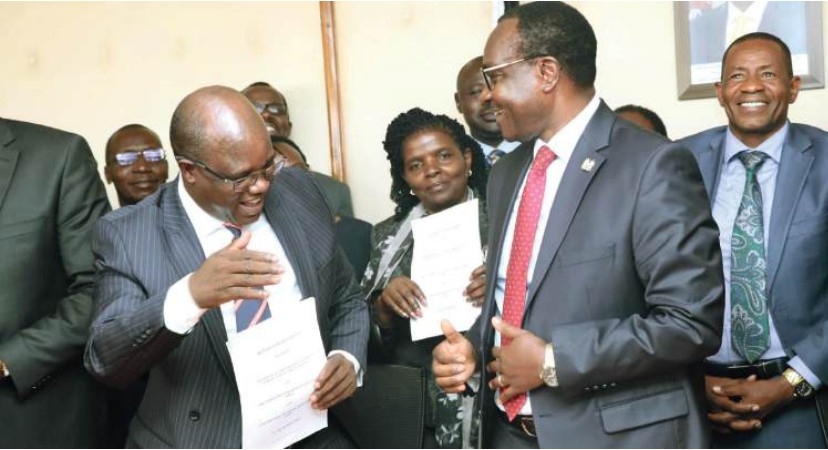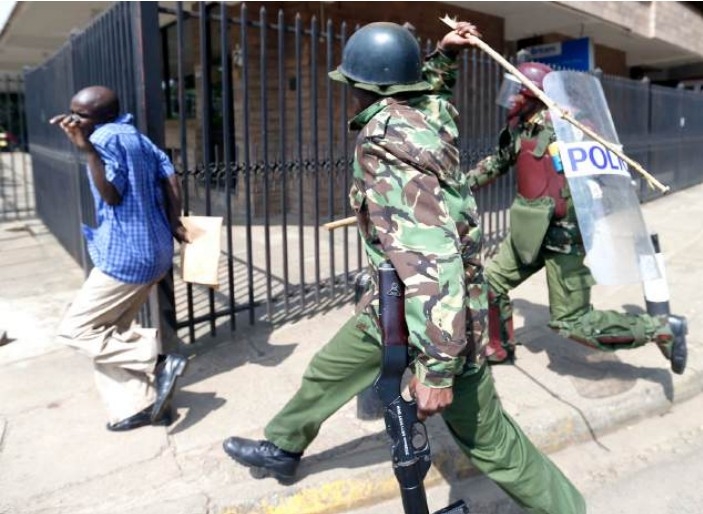
 Trans Nzoia Governor George Natembeya and DAP-K leader Eugene Wamalwa./FILE
Trans Nzoia Governor George Natembeya and DAP-K leader Eugene Wamalwa./FILEWhat began as a difference in leadership style and political strategy between Trans Nzoia Governor George Natembeya and DAP-K leader Eugene Wamalwa has now morphed into an open confrontation, threatening the unity and future of the party.
Natembeya, who was elected on a DAP–K ticket, has accused
Wamalwa of micromanaging him and attempting to control his leadership from the
party headquarters.
He claims that such interference has stifled his ability to
serve the people of Trans Nzoia effectively.
However, Wamalwa and his allies have dismissed Natembeya’s
accusations, describing them as a show of arrogance and betrayal.
They accuse the governor of turning his back on the party
that sponsored him to power in 2022.
Natembeya’s growing assertiveness has made him one of the
most outspoken opposition figures from Western Kenya.
Known for his blunt and fearless approach, the former
regional commissioner has positioned himself as a vocal critic of the
government and a champion of ordinary citizens.
His political star continues to rise nationally, with
speculation mounting that he could play a pivotal role in Western Kenya’s
political direction ahead of the 2027 general election.
Political observers now view Natembeya as a possible running
mate to Wiper leader Kalonzo Musyoka in the next presidential race, given his
popularity, boldness and independence from established political kingpins in
the region.
But this growing national stature appears to be unsettling
Wamalwa, fuelling an escalating rift that threatens to fracture DAP–K at a
crucial time.
Further, recent news reports indicate that President William
Ruto is attempting to court Wamalwa to his side.
DAP-K National Executive Council member Dr Chris Barasa said
efforts to bring the two together have so far borne little fruit, even with the
formation of a nine-member committee to address the rift.
“The committee met three times but could not agree. We
decided to postpone the meetings until after the Malava by-election on November
27 ,” Barasa said.
He said divisions deepened after one of Wamalwa’s
representatives on the committee defected to the United Democratic Alliance.
“Wamalwa later brought in another person through the back
door because the NEC did not recommend him,” Barasa added.
He said the rift between the two politicians is so deep that
they cannot share a campaign platform for their party’s candidate in the Malava
by-election, Seth Panyako.
“The day Eugene is in Malava for campaigns, Natembeya will
not be seen anywhere,” he said, adding that even Kakamega Deputy Governor Ayub
Savula, who had been working with Wamalwa, has switched sides to campaign for
UDA candidate David Ndakwa.
Despite the visible cracks, DAP-K secretary general Simiyu
Eseli has downplayed the fallout, insisting the party remains united.
“Both are campaigning for our candidate, only in different
areas,” he said, expressing optimism that the dispute would be resolved after
the by-elections.
“Toward the end of the campaign, they will be together
drumming up support for our party candidate.”
However, the cracks in DAP-K’s leadership became even more
evident when Savula broke ranks with both Wamalwa and Natembeya.
Savula declared his support for UDA’s David Ndakwa instead
of DAP-K’s Panyako, citing the need to back the “broad-based government” led by
President William Ruto.
“I have decided to support Ndakwa, who is the Kenya Kwanza
candidate in the race, in the spirit of the broad-based government,” Savula
said.
He criticised Wamalwa and Natembeya for “shipping their
fights” into the Malava campaign, saying their disunity was hurting the party’s
image.
The internal friction has exposed DAP-K’s struggle to
maintain cohesion as it seeks to expand its influence beyond Western Kenya.
In August, Wamalwa publicly challenged Natembeya and Mumias
East MP Peter Salasya to face him in DAP-K’s presidential nomination race ahead
of 2027, accusing unnamed members of plotting to wrest control of the party.
“If you want to become party leader or presidential
candidate, you are welcome to face me for the presidential ticket in free and
fair nominations,” Wamalwa declared.
Both Wamalwa and Natembeya remain publicly committed to
supporting DAP-K’s candidate, but their frosty relationship and competing
ambitions suggest that reconciliation may prove harder to achieve than party
officials would like to admit.


















